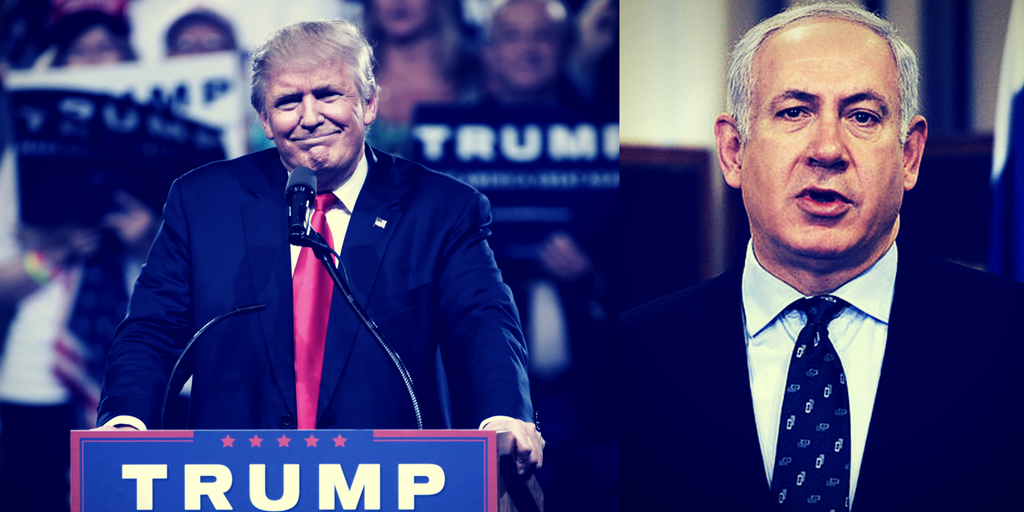What can we expect from President-elect Donald Trump’s administration?
The positions that Trump struck during the presidential campaign were sometimes inconsistent and even contradictory. So it is impossible to forecast precisely what he will do once in office. But not everything is shrouded in mystery. Indeed, some important characteristics of his administration are already apparent.
First of all, President Barack Obama’s legacy will die the moment he leaves the White House on January 20. Republicans may not agree on much. But Trump and his party do agree that Obama’s policies must be abandoned and replaced. And they will work together to rollback all of Obama’s actions as president.
On the domestic policy front this means first and foremost that Obamacare will be repealed and replaced with health industry reforms that open the medical insurance market to competition.
With the support of the Republican-controlled Senate, Trump will end Obama’s push to reshape the US Supreme Court in the image of the activist, indeed, authoritarian Israeli Supreme Court. During his four year term, Trump may appoint as many as four out of nine justices. In so doing he will shape the court for the next generation.
Trump made clear during the race that the justices he selects will oppose the Obama-led leftist plan to transform the Court into an imperial judiciary that determines social and cultural norms and legislates from the bench.
Trump will also clean out the IRS. Under Obama, the IRS became an instrument of political warfare. Conservative and right wing pro-Israel groups were systematically discriminated against and targeted for abuse. It is possible to assume that Trump will fire the IRS officials who have been involved in this discriminatory abuse of power.
To be sure, much is still unclear about Trump’s foreign policy. But here too, certain things are already known. Trump will vacate the US’s signature from the nuclear deal with Iran.
Trump will not be able to repair the damage the deal has already caused – at least not immediately. He will not be able to reimpose the multilateral and UN Security Council sanctions on Iran that the nuclear deal cancelled. Such a move will require prolonged negotiations and their conclusion is far from assured.
Trump will likewise be unable to take back the billions of dollars that Iran has already received due to the abrogation of economic sanctions and through cash payoffs from the Obama administration.
At the same time, from his first day in office, Trump will change the trajectory of US policy towards Iran. He will oppose Iran’s acquisition of nuclear weapons. He will oppose Iran’s rise to regional hegemony.
A second conclusion that it is already possible to draw about the Trump presidency is that Trump will be much more like the hands off Ronald Reagan than the hands on Obama. His past as a businessman along with his lack of governmental or political experience will lead Trump to set general policy guidelines and goals and delegate responsibility for crafting suitable policies and programs to his cabinet secretaries and advisors.
This means that personnel will very much be policy in the Trump administration. Whereas Obama’s cabinet members and advisors have been more or less interchangeable since Obama himself determined everything from the details of his policies to the ways that the policies would be sold to the public (or hidden from the public), and implemented, Trump’s pick of advisors will be strategically significant.
Clearly it is too early to know who Trump’s advisors and cabinet members will be. But there is good reason for Israel to be encouraged by the advisors who have worked with Trump during the campaign.
Vice President-elect Mike Pence is one of the most pro-Israel policymakers in America. Former speaker of the house Newt Gingrich is an outspoken ally of Israel and of the US-Israel alliance. Likewise, former New York mayor Rudy Guiliani, former senator Rick Santorum, retired general Mike Flynn, and former UN ambassador John Bolton are all extraordinary champions of the US alliance with Israel.
Trump’s Israel affairs advisors during the campaign, David Friedman and Jason Greenblatt are also among the strongest advocates of the US-Israel alliance that have arisen in decades.
The striking friendliness of the Trump election team is even more notable when we consider what Israel would have faced from a Hillary Clinton administration. Clinton’s cabinet-in-waiting at the George Soros-funded and John Podesta-run Center for American Progress contained no serious advocates of the US-Israel alliance.
And her stable of advisors were not merely indifferent to Israel.
The Wikileaks revelations from Podesta’s emails, like the correspondences published by Judicial Watch from Clinton’s tenure as secretary made clear that Clinton’s team included several advisors with deep-seated hostility if not animus toward Israelis and toward the Israeli government.
The third thing that is already clear about the nature of the Trump administration is that it will not hesitate to abandon received wisdom on a whole host of issues and initiate policies that the bipartisan policy elites wouldn’t be caught dead even talking about.
Trump’s victory was first and foremost a defeat for the American elite, what Prof. Angelo Codevilla memorably referred to as America’s “ruling class.”
Trump’s campaign did not merely target the Democratic establishment. He attacked the Republican establishment as well. True, in his victory speech Trump said that he intends to heal the rifts in American society – presumably starting with his own party. But at least one thing ought to be clear about that reunification. As the president-elect, Trump will set the terms of the healing process.
There is every reason to expect that at a minimum, Trump will not soon forgive the Republicans who refused to support and even opposed his presidential bid. Members of the NeverTrump camp will be denied positions and influence over the Trump administration and sent into the political desert.
Another establishment that fell on its sword in this election is the American Jewish establishment. Led by the Anti-Defamation League, the American Jewish establishment, including its largest donors, stood almost as one in its support for Clinton. The American Jewish leadership placed their partisan preferences above their communal interests and responsibilities. In so doing they enfeebled the community in a manner that will be difficult to repair.
Both the Democratic Party and the Republican Party have anti-Semites in their ranks. The Jewish establishment ignored and pretended away the Democratic anti-Semites, even when they were burning Israeli flags at the Democratic convention. They said nothing when anti-Israel ravings that were at best borderline anti-Semitic of senior Clinton advisors like Thomas Pickering and Anne Marie Slaughter were published by Judicial Watch.
On the other hand, the Jewish establishment castigated Trump as anti-Semitic for the presence of anti-Semites like David Duke on the fringes of the Republican Party. Legitimate criticisms of anti-Israel financier George Soros were condemned as anti-Semitic while truly anti-Semitic assaults on Trump donor Sheldon Adelson by Clinton backers went unaddressed.
The consequence of the Jewish establishment’s almost total mobilization for Clinton is clear. The Trump White House won’t have an open door policy for those who falsely accused Trump of anti-Semitism.
Jewish Americans are going to have to either oust the leaders of the groups that put their party before their community or establish new organizations to defend their interests. Whatever path is chosen, the process of rebuilding the communal infrastructure the community’s leaders have wrecked will be long, difficult and expensive.
Unlike the American Jewish community, for Israel, the defeat of the American establishment is a positive development. The American foreign policy elite’s default bipartisan position on Israel was bad for both Israel and the health and reliability of its alliance with the US.
As I explained in my book, The Israeli Solution: A One-State Plan for Peace in the Middle East, there was a dismaying consistency in US policy towards Israel that ran from Bill Clinton’s administration through the George W. Bush administration and on to the Obama administration.
At least since the Clinton years, the received wisdom of the American foreign policy elite has been that the US must seek to swiftly cause Israel to sign a deal with the PLO. The contours of the deal are similarly clear to all concerned. Israel must surrender control over all or most of Jerusalem, Judea and Samaria and transfer the areas, more or less Jew free, to the PLO.
This bipartisan view is inherently hostile to Israel. It places all the responsibility for making peace on Israel. And as the sole responsible party, Israel is also the sole party that is guilty for the absence of peace. The flipside is similarly dismal. Palestinians are absolved of responsibility for terrorism, hatred and political warfare against Israel.
The anti-Israel hostility inherent in the two-state paradigm has brought on a situation where even pro-Israel US officials end up joining their anti-Israel colleagues in bearing down on Israel to act in manners that are inimical both to its national security and to the very concept of a US-Israel alliance. The foreign policy ruling class’s commitment to the two-state paradigm has blinded them to Israel’s strategic importance to the US and caused them to see the US’s only stable ally in the region as a drag on US interests.
Many of Trump’s advisors, including Gingrich, whose name has been raised as a leading candidate either to serve as Trump’s White House chief of staff or as Secretary of State, have rejected this received wisdom. In a Republican presidential debate in 2011, Gingrich referred to the Palestinians as an “invented people,” and noted that they indoctrinate their children to perceive Jews as subhuman and seek their annihilation. For his statement of fact, Gingrich was brutally assaulted by Democratic and Republican elites.
But he never rescinded his statement.
Trump’s election provides Israel with the first opportunity in fifty years to reshape its alliance with the US.
This new alliance must be based a common understanding and respect for what Israel has to offer the US as well as the limits of what the US can offer Israel. The limits of US assistance are in large part the consequences of the many genies that Obama unleashed during the past eight years. And the opportunities will come more in areas related to Israel’s relations with the Palestinians and the political war being waged against it by the Europeans and the international left than to the challenges posed by the ascendance of Islamism in the Middle East.
To be sure, Trump is inconsistent. But from what we do know we must recognize that his rise is a deflection point in US history.
It is a rare moment where things that were unimaginable a month ago are possible. And if we play our cards right, like the American people, Israel stands to gain in ways we never dreamed.
Originally published in The Jerusalem Post.

[huge_it_share]



